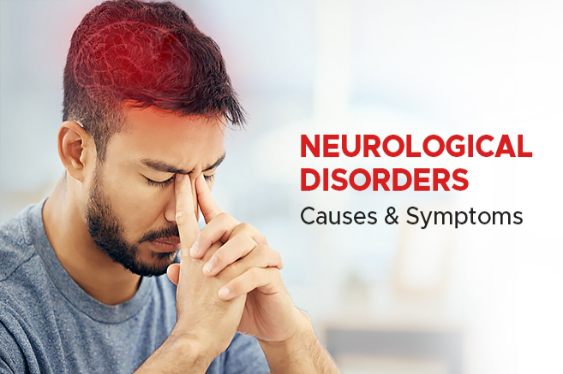Demystifying Brain Disorders: A Guide to Neurological Conditions
The intricately wired web of neurons in our brain controls everything from our movements to our personalities. So when something malfunctions in this complex organ, the impact can be devastating. Brain disorders disrupt critical neurological pathways, leading to symptoms that upend lives.
While we still have much to uncover about the mysteries of the brain, researchers have identified key factors that can spark neurological conditions. In this blog, we’ll explore common brain disorders, what triggers them, their symptoms, and future treatment outlooks to shed light on these complicated conditions.
What are Neurological Disorders?
Neurological disorders are diseases that affect the nervous system, including the brain, spinal cord, nerves, and muscles. They are typically caused by abnormalities in the brain and disrupt neural communication. Some neurological conditions are present from birth, while others develop later in life due to factors like genetics, injury, or environmental triggers.
The symptoms vary widely depending on the part of the brain or nervous system involved. They can include issues with movement, senses, mental function, speech, coordination etc. Treatment also varies based on underlying cause but may involve medication, therapy, surgery or devices.
There are over 600 identified neurological conditions ranging from common disorders like migraine to rare diseases like ALS.
Some main types of neurological disorders include:
- Neurocognitive disorders – Disorders like Alzheimer’s disease and Parkinson’s disease that involve decline in cognition and damage to brain cells.
- Neuromuscular diseases – Conditions like multiple sclerosis that damage the muscles and nerves, impacting mobility.
- Neurodevelopmental disorders – Present from early life, these include disorders like autism spectrum disorder that affect development.
- Seizures & epilepsy – Abnormal electrical activity in the brain causes seizures. Causes range from genetics to brain injuries.
- Headache disorders – Severe head pain conditions like migraines, cluster headaches, and tension headaches.
- Stroke – Blocked blood flow to the brain can cause cell death in impacted areas, affecting function.
What Triggers Brain Disorders?
Experts believe neurological conditions develop due to a mix of genetic, developmental, autoimmune, injury, and neurotransmitter factors:
- Genetics – Mutated genes passed down in families can impair healthy brain development.
- Developmental – Damage during fetal growth or inadequate stimulation in childhood raises risks.
- Autoimmunity – The immune system may incorrectly attack brain cells and protective myelin sheaths.
- Injury – Physical traumas like strokes or head impacts damage neurons and connections.
- Neurotransmitters – Imbalances in brain chemicals that enable nerve communication heavily influence brain function.
Common Symptoms
Since the brain controls so much, neurological disorder symptoms vary widely but may include:
- Cognitive problems – Memory loss, impaired concentration
- Sensory disruption – Numbness, tingling, dizziness
- Movement issues – Poor coordination, tremors, mobility loss
- Pain – Headaches, neck and back soreness
- Mood changes – Depression, anxiety, emotional volatility
- Speech/swallowing impairment – Slurred speech, choking issues
- Vision changes – Blurred or double vision
Seeking early treatment is key, as identifying and addressing root causes can dramatically improve outcomes. Neurologists run tests to pinpoint the affected areas and likely causes to guide appropriate therapies.
Exploring Major Neurological Diseases
Let’s look at some of the most prevalent neurological conditions in more detail:
Alzheimer’s Disease
This progressive disorder impairs memory, cognition and behaviour. Amyloid plaques and tau tangles build up in the brain, destroying connections between neurons. Later stages bring personality changes, confusion, and difficulty with speech, swallowing and walking as the disease spreads.
Parkinson’s Disease
Loss of dopamine-producing neurons causes worsening tremors, rigid muscles, balance issues and coordination problems. Medications aim to increase dopamine to manage symptoms, but currently, there is no cure for progressive neuron destruction.
Multiple Sclerosis
The immune system attacks the myelin sheath protecting nerve fibers in the brain and spinal cord, disrupting signal transmission. This leads to escalating physical and cognitive disability. Early symptoms include vision loss, numbness, weakness and dizziness.
ALS
This fatal disease destroys nerve cells that control voluntary muscles, progressively weakening and paralyzing muscles involved in breathing, swallowing and speech. It is also known as Lou Gehrig’s disease.
Epilepsy
Recurrent seizures caused by abnormal electrical brain activity characterize epilepsy. Seizures can lead to convulsions, loss of consciousness and sensory changes depending on the brain region affected. Genetics, brain injuries and structural abnormalities underlie seizure development.
The Future of Neurological Treatments
While we still have much to learn, researchers are continually gaining insights into brain disorders and developing new treatments. Precision genetic medicines, immunotherapies, deep brain stimulation and neural prosthetics hold promise for transforming future care.
For now, recognizing neurological red flags early and consulting specialists can help those facing brain disorders pursue paths to healing. By understanding how vulnerable our vital neural connections are, we gain both wisdom and compassion. Reach out at the first signs of cognitive, emotional or physical changes to explore any underlying neurological factors. With an open dialogue and the right specialist team, those facing brain disorders can move towards hope and healing.
Dispur Polyclinic and Hospital stands as a beacon of excellence in healthcare, specialising in the diagnosis and treatment of neurological conditions. Our dedicated team of skilled healthcare professionals is committed to providing compassionate, personalized care to patients grappling with disorders of the brain and nervous system. With state-of-the-art facilities and cutting-edge medical technologies, we offer a holistic approach to managing neurological diseases.
If you or a loved one is seeking expert care and effective solutions for conditions like Alzheimer’s, Parkinson’s, epilepsy, multiple sclerosis, or migraines, trust Dispur Polyclinic and Hospital to be your partner in health. Schedule a consultation today and take the first step towards a healthier tomorrow. Call at +91 7670007615 or book an appointment online today.


Leave feedback about this